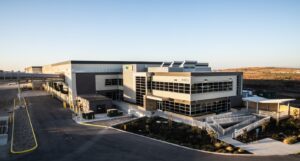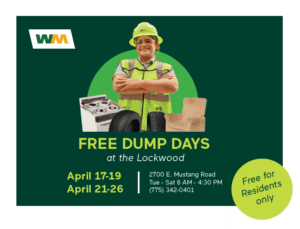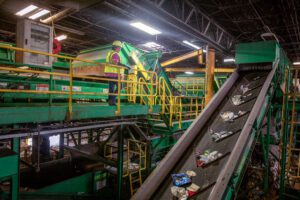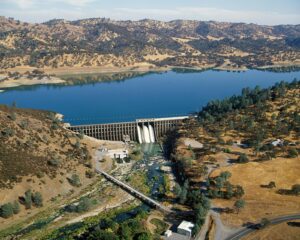Organics – yard trimmings, food scraps, and food-soiled paper – account for nearly 40 percent of the materials in our landfill, according the US EPA. They are also the source of potent greenhouse gas emissions when placed in landfills. These materials should be composted to return vital nutrients to local soil, eliminate greenhouse gas emissions and save precious landfill space.
In 2011, Davis Street constructed a LEED™ (Leadership in Energy & Environmental Design) Gold transfer building called an Organic Material Recovery Facility (OMRF) to manage organics material. Nearly 800,000 pounds of organic materials pass through the building each day on route to regional composting facilities.
Composting Tips
- A simple way to collect food scraps is to store them in a cardboard (compostable) ice cream or milk container in your refrigerator or freezer.
- Using compost and mulch recycled from curbside organics and construction wood can help you save water and avoid the use of chemical fertilizers and herbicides.
Compost and Landscaping Materials at Davis Street
Davis Street is home to a WM EarthCare Landscaping Center where individuals and businesses can purchase some of the high quality compost, mulch, and landscaping rock materials produced from WM’s recycling and recovery operations. It’s a great way to reduce your environmental impact without sacrificing on the quality of your materials.
Want to learn more about WM EarthCare™ products or make a bulk order?
Visit the WM EarthCare™ website




